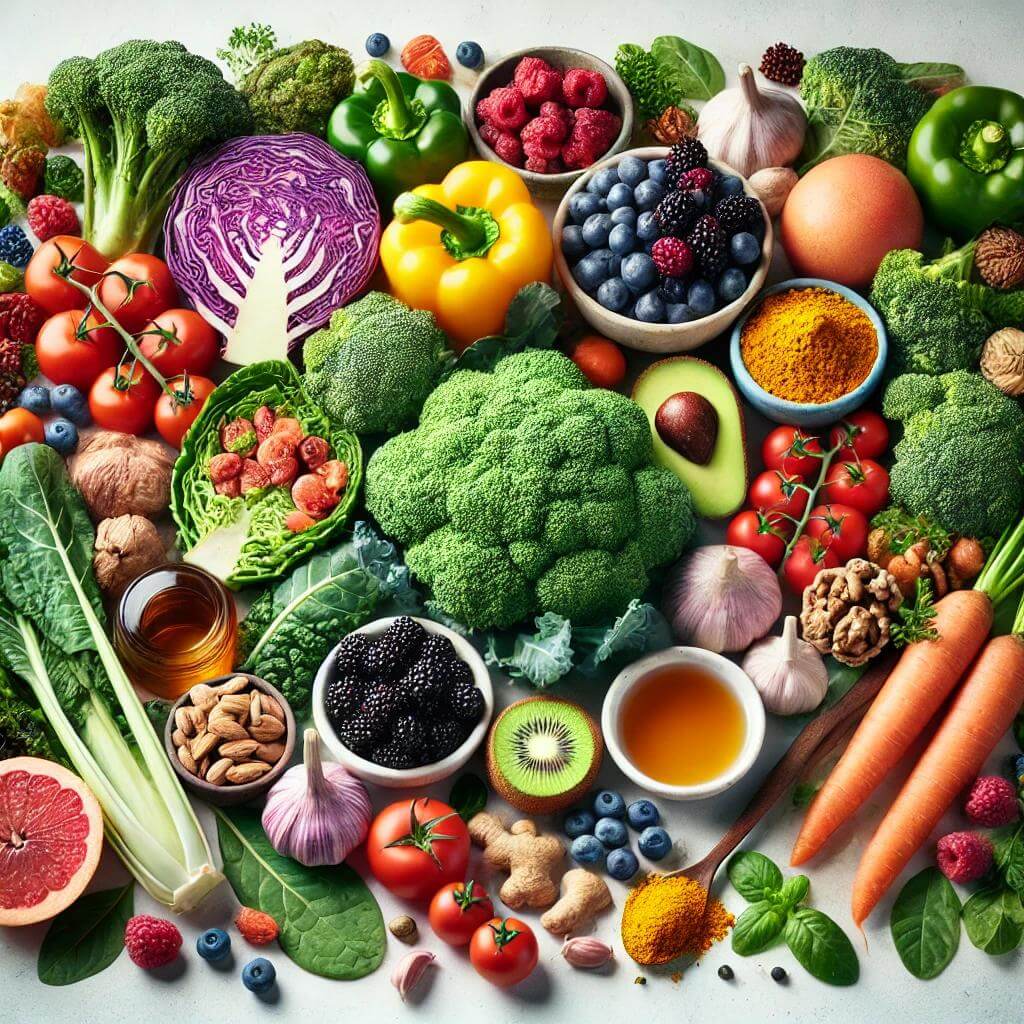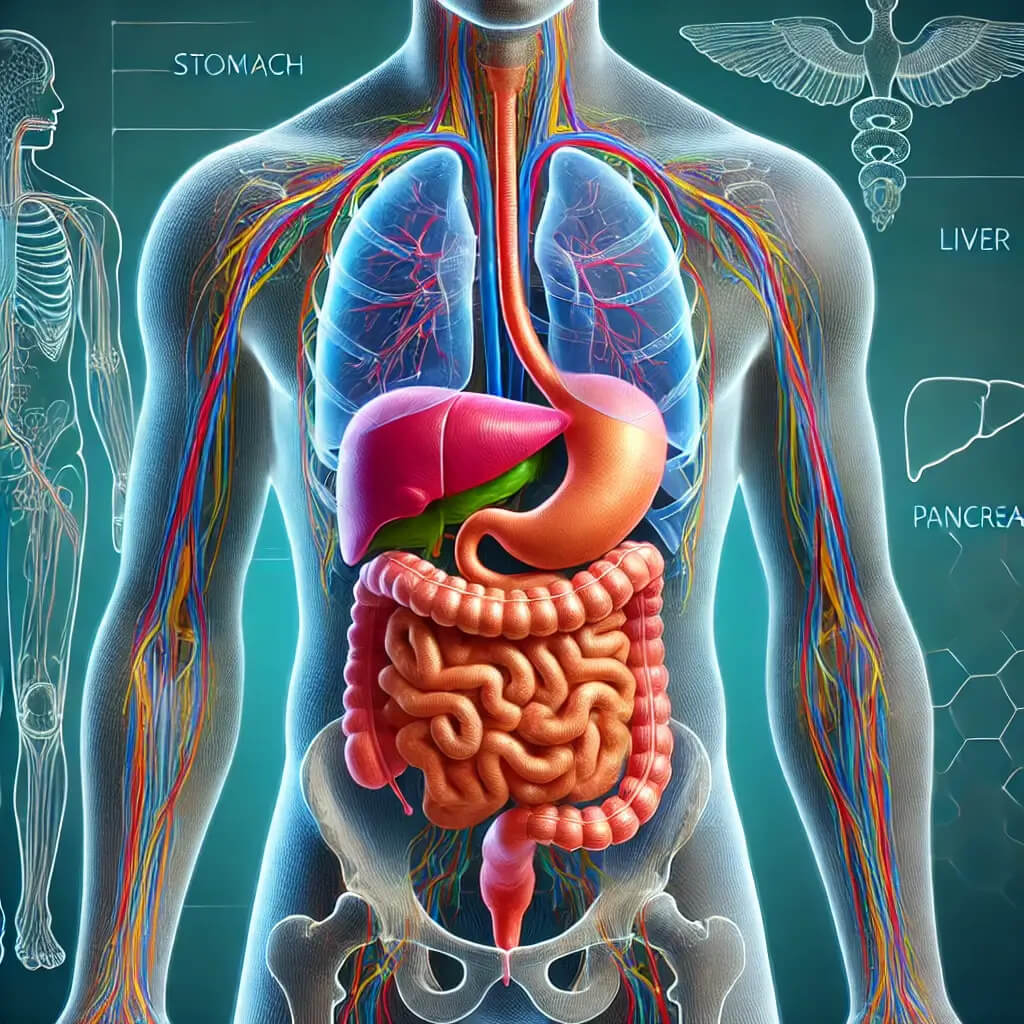Top 10 Cancer-Fighting Foods: Protect Your Health
Cancer remains one of the leading causes of death worldwide, but research suggests that up to one-third of all cancers can be prevented by adopting a healthy lifestyle, which includes a nutritious diet. The foods we eat play a crucial role in influencing our overall health, including our risk of developing cancer. By choosing a diet rich in cancer-fighting foods, we can nourish our bodies with the essential nutrients needed to prevent the onset of this disease. This article explores the top foods known for their cancer-preventing properties, highlighting how they work to protect your health.
The Best Foods to Prevent Cancer
1. Cruciferous Vegetables
Cruciferous vegetables, including broccoli, cauliflower, Brussels sprouts, and kale, are among the most potent cancer-fighting foods.
- Rich in Glucosinolates: Cruciferous vegetables contain glucosinolates, sulfur-containing compounds that break down into biologically active compounds like indoles, nitriles, and isothiocyanates. These compounds have been shown to inhibit the development of cancer by protecting cells from DNA damage and inactivating carcinogens.
- Supports Detoxification: These vegetables support the body’s detoxification processes by enhancing the elimination of carcinogens and other harmful substances.
- Promotes Apoptosis: Compounds in cruciferous vegetables promote apoptosis, the process of programmed cell death, which is crucial for preventing the uncontrolled growth of cancer cells.
2. Berries
Berries, including blueberries, strawberries, raspberries, and blackberries, are packed with antioxidants and phytochemicals that contribute to their cancer-fighting properties.
- High in Antioxidants: Berries are rich in antioxidants like vitamin C, ellagic acid, and quercetin, which protect cells from oxidative damage caused by free radicals. This oxidative stress is a major factor in the development of cancer.
- Anti-Inflammatory Properties: The anti-inflammatory compounds in berries help reduce chronic inflammation, a known risk factor for many types of cancer.
- Inhibits Tumor Growth: Studies suggest that the phytochemicals in berries can inhibit the growth and spread of cancer cells by preventing the formation of new blood vessels that tumors need to grow.
3. Tomatoes
Tomatoes are a rich source of lycopene, a powerful antioxidant known for its cancer-preventing properties, particularly in reducing the risk of prostate cancer.
- Lycopene Power: Lycopene is a carotenoid that gives tomatoes their red color. It has been extensively studied for its ability to reduce the risk of several types of cancer, especially prostate cancer. Lycopene neutralizes free radicals, preventing them from damaging cells and leading to cancer.
- Enhances Immune Function: Tomatoes support immune function, helping the body recognize and destroy abnormal cells before they develop into cancer.
- Improves Absorption with Cooking: Lycopene becomes more bioavailable when tomatoes are cooked, so incorporating cooked tomatoes, such as in sauces or soups, can enhance the cancer-fighting benefits.
4. Garlic
Garlic is renowned for its potent medicinal properties, including its ability to reduce cancer risk.
- Contains Allicin: The active compound allicin, which is released when garlic is crushed or chopped, has strong antioxidant properties that help neutralize harmful free radicals in the body.
- Enhances Detoxification: Garlic supports the liver’s detoxification processes, helping the body eliminate toxins that can contribute to cancer development.
- Reduces Carcinogen Activation: Garlic has been shown to inhibit the activation of carcinogens, particularly those found in tobacco and certain foods, thereby reducing the risk of cancer.
5. Green Tea
Green tea is rich in polyphenols, particularly catechins, which are powerful antioxidants with cancer-fighting properties.
- High in EGCG: Epigallocatechin gallate (EGCG) is the most abundant catechin in green tea and has been extensively studied for its anti-cancer effects. EGCG can prevent the growth of cancer cells and induce apoptosis in existing cancer cells.
- Protects DNA: The antioxidants in green tea protect DNA from damage caused by free radicals and environmental toxins, reducing the risk of mutations that can lead to cancer.
- Inhibits Tumor Growth: Green tea has been shown to inhibit the growth of tumors by preventing angiogenesis, the formation of new blood vessels that tumors need to grow.
6. Turmeric
Turmeric, particularly its active compound curcumin, is a powerful anti-inflammatory and antioxidant that offers significant cancer-preventing benefits.
- Anti-Inflammatory Effects: Curcumin is one of the most potent natural anti-inflammatory agents known. Since chronic inflammation is a key driver of cancer, turmeric’s ability to reduce inflammation is crucial in cancer prevention.
- Inhibits Cancer Cell Growth: Curcumin has been shown to inhibit the growth and spread of cancer cells by disrupting the cell cycle and inducing apoptosis.
- Enhances Detoxification: Turmeric enhances the body’s detoxification processes, helping to remove carcinogens and other harmful substances before they can cause damage.
7. Leafy Greens
Leafy greens, such as spinach, kale, and Swiss chard, are rich in vitamins, minerals, and antioxidants that support overall health and reduce cancer risk.
- Rich in Chlorophyll: Chlorophyll, the green pigment in leafy vegetables, has been shown to bind to potential carcinogens and prevent them from being absorbed by the body.
- High in Folate: Folate is essential for DNA synthesis and repair. Adequate folate intake is linked to a reduced risk of several cancers, including colon, breast, and pancreatic cancer.
- Boosts Immune Function: The high concentration of antioxidants in leafy greens supports the immune system in identifying and eliminating cancerous cells.
8. Nuts
Nuts, particularly almonds, walnuts, and Brazil nuts, are rich in healthy fats, antioxidants, and other nutrients that contribute to their cancer-preventing properties.
- High in Selenium: Brazil nuts are one of the richest sources of selenium, a mineral that has been shown to reduce the risk of certain cancers, particularly prostate cancer.
- Contains Omega-3 Fatty Acids: Walnuts are rich in omega-3 fatty acids, which have anti-inflammatory effects and may reduce the risk of cancer by inhibiting the growth of cancer cells.
- Rich in Fiber: The fiber in nuts helps regulate digestion and may reduce the risk of colorectal cancer.
9. Carrots
Carrots are an excellent source of beta-carotene, an antioxidant that has been linked to a reduced risk of several types of cancer.
- Rich in Beta-Carotene: Beta-carotene is converted into vitamin A in the body, which plays a crucial role in maintaining healthy cells and tissues. Its antioxidant properties help protect cells from damage caused by free radicals.
- Boosts Immune Function: Carrots support the immune system, enhancing the body’s ability to fight off abnormal cells before they can develop into cancer.
- Promotes Detoxification: Carrots contain compounds that support the liver’s detoxification processes, helping to remove carcinogens and other toxins from the body.
10. Whole Grains
Whole grains, including oats, brown rice, and quinoa, are rich in fiber, antioxidants, and other nutrients that support overall health and reduce cancer risk.
- High in Fiber: The fiber in whole grains supports healthy digestion and helps regulate blood sugar levels, which can reduce the risk of certain cancers, particularly colorectal cancer.
- Contains Phytochemicals: Whole grains are rich in phytochemicals, including lignans and saponins, which have been shown to inhibit the growth of cancer cells and promote apoptosis.
- Supports Immune Function: The nutrients in whole grains support immune function, helping the body identify and eliminate cancerous cells.
Summary Table of Cancer-Preventing Foods
| Food | Key Compounds | Cancer-Preventing Benefits |
|---|---|---|
| Cruciferous Vegetables | Glucosinolates, Isothiocyanates | Inhibits carcinogens, promotes apoptosis |
| Berries | Antioxidants, Phytochemicals | Reduces oxidative stress, inhibits tumor growth |
| Tomatoes | Lycopene | Neutralizes free radicals, supports immune function |
| Garlic | Allicin | Reduces carcinogen activation, supports detoxification |
| Green Tea | EGCG, Catechins | Protects DNA, inhibits tumor growth |
| Turmeric | Curcumin | Reduces inflammation, enhances detoxification |
| Leafy Greens | Chlorophyll, Folate | Binds carcinogens, supports DNA repair |
| Nuts | Selenium, Omega-3 Fatty Acids | Reduces cancer risk, inhibits cell growth |
| Carrots | Beta-Carotene | Protects cells, supports detoxification |
| Whole Grains | Fiber, Phytochemicals | Regulates digestion, supports immune function |
Conclusion
Incorporating a variety of cancer-fighting foods into your diet is a powerful step towards protecting your health and reducing your risk of developing cancer. Each of these foods offers unique compounds that work together to neutralize harmful substances, support detoxification, and enhance your body’s ability to fight off cancerous cells. By making these foods a regular part of your diet, you can nourish your body with the nutrients it needs to stay
*Disclaimer: The information provided in this article is for educational and informational purposes only and should not be construed as health advice. The content is solely the personal opinion of the author and is not intended to be a substitute for professional medical advice, diagnosis, or treatment. Always seek the advice of your physician or other qualified health provider with any questions you may have regarding a medical condition or before starting any new diet or treatment. Read more




2 comments